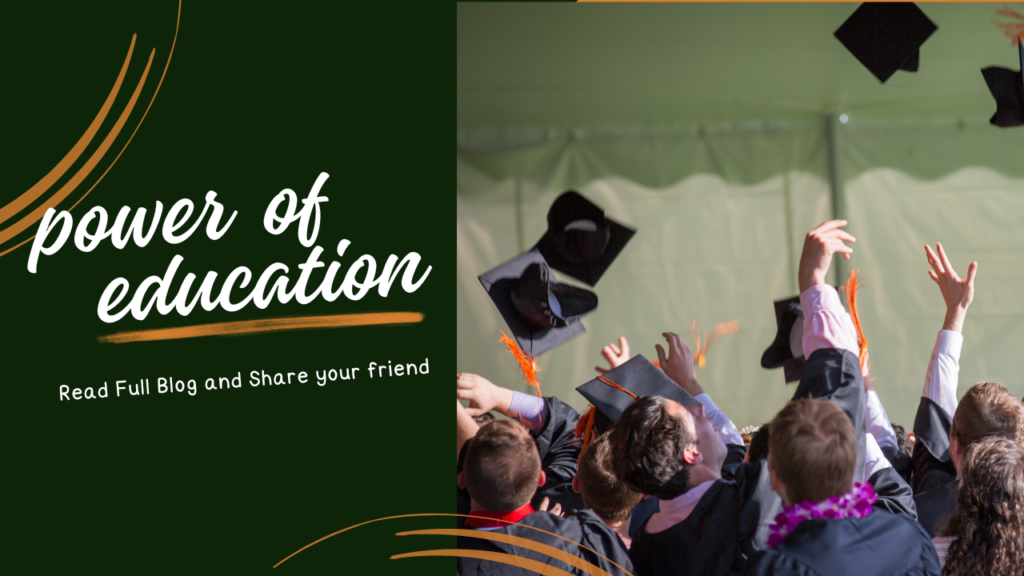
The power of education is multifaceted and profound, transcending individual lives to shape societies, economies, and the world at large. Here’s a detailed explanation of the power of education:
- Empowerment: Education empowers individuals by equipping them with knowledge, skills, and critical thinking abilities. It enables people to make informed decisions, pursue opportunities, and navigate the complexities of modern life with confidence and autonomy.
- Social Mobility: Education serves as a catalyst for social mobility, offering individuals from diverse backgrounds the opportunity to improve their socio-economic status and achieve upward mobility. By providing access to quality education, societies can reduce inequality and foster inclusive growth.
- Economic Prosperity: Education is a key driver of economic prosperity and competitiveness. It enhances workforce productivity, stimulates innovation, and fosters entrepreneurship, laying the foundation for sustainable economic development and prosperity.
- Global Citizenship: Education cultivates global citizenship by fostering cross-cultural understanding, empathy, and tolerance. It enables individuals to appreciate diversity, respect human rights, and contribute positively to a more interconnected and interdependent world.
- Empathy and Compassion: Education nurtures empathy and compassion by promoting values such as kindness, empathy, and social responsibility. It instills a sense of empathy towards others’ experiences and challenges, fostering solidarity and cooperation in addressing social injustices and inequalities.
- Critical Thinking and Problem-Solving: Education cultivates critical thinking and problem-solving skills, enabling individuals to analyze complex issues, evaluate evidence, and develop creative solutions to real-world problems. These skills are essential for personal and professional success in a rapidly evolving global landscape.
- Health and Well-being: Education plays a pivotal role in promoting health and well-being by raising awareness about healthy lifestyles, disease prevention, and access to healthcare services. Educated individuals are more likely to adopt healthier behaviors and make informed decisions about their physical and mental well-being.
- Environmental Sustainability: Education fosters environmental awareness and sustainability by promoting ecological literacy, conservation efforts, and sustainable development practices. It empowers individuals to become stewards of the environment, advocating for environmental protection and responsible resource management.
- Democratic Values: Education upholds democratic values such as freedom, equality, and justice by promoting civic engagement, participation, and respect for the rule of law. It fosters an informed and engaged citizenry capable of safeguarding democratic institutions and upholding civil liberties.
- Lifelong Learning: Education is a lifelong journey of discovery, growth, and personal fulfillment. It encourages continuous learning, self-improvement, and intellectual curiosity throughout one’s life, enabling individuals to adapt to change, pursue new opportunities, and enrich their lives intellectually and spiritually.
In summary, the power of education extends far beyond the confines of classrooms and textbooks. It is a transformative force that empowers individuals, strengthens communities, and drives progress towards a more just, prosperous, and sustainable world. As societies invest in education and prioritize equitable access to learning opportunities, they unlock the full potential of individuals and lay the groundwork for a brighter future for generations to come.